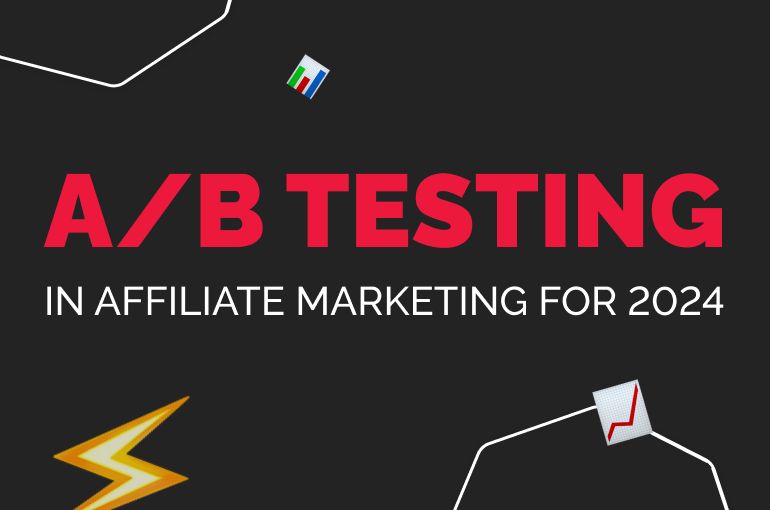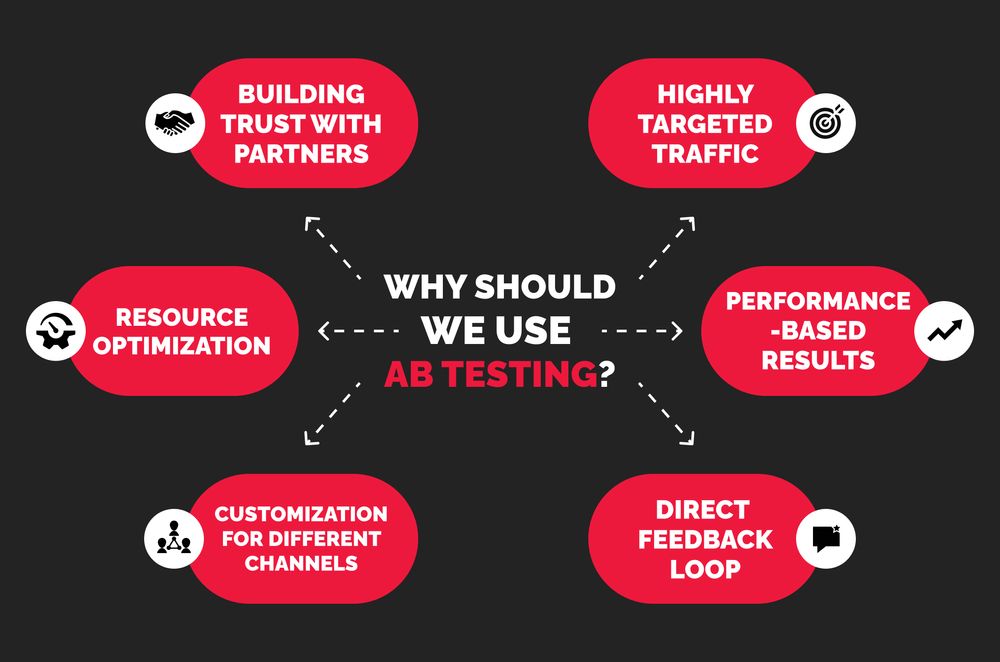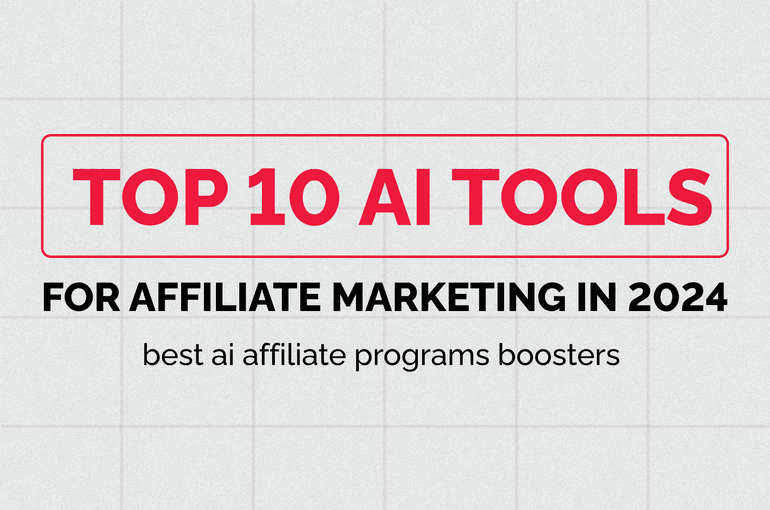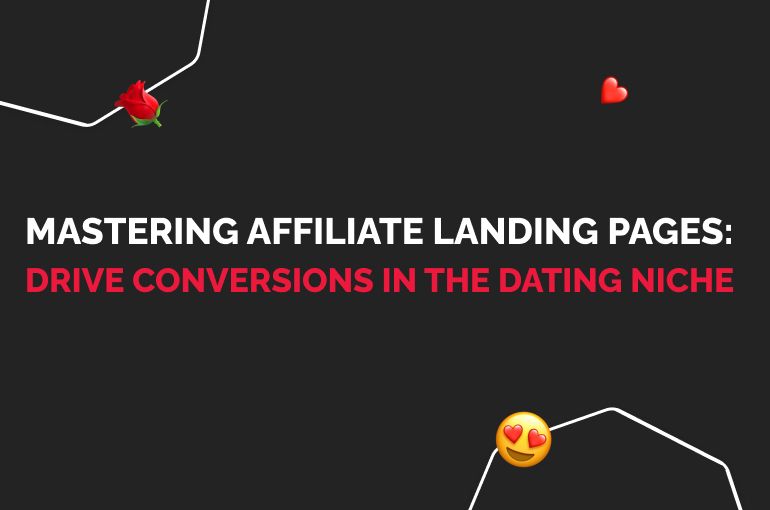Mastering A/B Testing in Affiliate Marketing: A Comprehensive Guide

Getting started with marketing often means putting up with reading long and dull instructions. Here, we'll shake things up with a more fun approach. Remember the catchy song lyrics "I have a pen, I have an apple, ah, apple pen"? Like combining pen and apple in the song, we connect and match elements in A/B tests to achieve desirable results and profits. Get ready to blend the marketing ingredients as our Apple Pen strategy becomes a Profit Pen!
Understanding A/B Testing
- Understanding A/B Testing
- What is A/B testing?
- Importance of A/B Testing in Affiliate Marketing
- Setting Up A/B Tests
- Defining Your Goals and Hypotheses
- Designing Your A/B Tests
- Tools and Technologies for A/B Testing
- Best Practices in A/B Testing
- Crafting Effective Test Elements
- Analyzing and Interpreting Test Results
- Ethical Considerations and User Privacy
- Advanced Strategies in A/B Testing
- Beyond Basic A/B Testing: Multivariate Tests and More
- Predictive Analytics and A/B Testing
- Conclusion
When it comes to A/B testing and experimentation in marketing, especially in affiliate marketing, there are certain complex aspects to consider. Let's start with the basics first: by covering the A/B test meaning and what it's all about.
What is A/B testing?
A/B testing explained in basic terms is a data-driven strategy in the marketing field. Here, two options (A and B) are tested to identify the more effective one for a specific goal. It's a method to optimize website performance and improve visitor conversion rates. To better understand what A/B split testing is, we'll describe it with hypothetical examples to put theory into practice.
Example | Variant A | Variant B | Goal | Metric to Measure |
|---|---|---|---|---|
Email Campaign | Standard subject line | Personalized subject line with recipient's name | Increase open rate | Email open rate |
Website Layout | Original homepage layout with basic design | New homepage layout with interactive elements | Enhance user engagement | Time spent on page, click-through-rate |
Call-to-Action Button | Button with text Subscribe Now | Button with text Join Us Today | Boost subscription rate | Number of subscriptions, click rate |
The results provide actionable insights that guide marketers in optimizing their strategies for better performance and conversion rates.
Importance of A/B Testing in Affiliate Marketing

The importance of A/B testing methods in affiliate marketing can be seen through a few key aspects:
- Highly Targeted Traffic: Understanding precisely what resonates with niche groups is crucial. A/B testing helps in fine-tuning the messaging and offerings.
- Performance-Based Results: Earnings are directly tied to the effectiveness of the ads, content, and strategies. Split A/B testing becomes a vital tool for optimizing performance and maximizing returns.
- Customization for Different Channels: A/B testing in marketing allows affiliates to customize their approach for each channel effectively, ensuring optimal performance across the board.
- Resource Optimization: A/B testing helps identify the most effective strategies, which is crucial for resource allocation and a higher return on investment.
- Building Trust with Partners: Effective A/B testing can lead to better campaign performance, which can help form a stronger relationship with an affiliate partner or brand.
Setting Up A/B Tests
When you try to set up your A/B tests, it may initially feel like facing a big wall you must overcome. But it’s much more manageable when you follow clear instructions! It's as easy as 1, 2, 3 with these proper steps:
- Define a clear goal.
- Select one variable to test.
- Create two versions: A (control) and B (variant).
- Split the audience evenly and randomly.
- Run the test concurrently.
- Analyze the results to determine the better-performing version.
- Apply the insights for optimization.
Defining Your Goals and Hypotheses
Let's use the dating niche as an example. Here, defining goals and hypotheses for A/B testing focuses on what resonates with users seeking connections. Start with a specific goal like increasing profile completions, message responses, or premium subscriptions.
- Test different prompts or designs to encourage users to complete their profiles. A more interactive or visually appealing process increases completion rates.
- Experiment with different messaging formats or notification styles. Personalized prompts lead to more valuable message exchanges.
- Test varied pricing displays or subscription benefits. Clearer value propositions increase conversions.
- Experiment with layout changes in user profiles or search functions. An intuitive design increases user engagement.
In each case, choose one variable, create a control and a variant, and measure the outcome against your hypothesis. This focused approach leads to actionable insights specific to the dating market.
Designing Your A/B Tests

When you decide on your use of A/B testing, you should consider many factors, such as the platform, location, and all the elements you typically use. Even if you've defined your target audience, it doesn't guarantee that you'll find the right approach for engaging them on your platform. For example, people who visit Facebook and TikTok are looking for different things on those platforms.
There are numerous variables that you can adjust, and each one can impact the outcome. Let's go over some examples! Note: the ones below are illustrative, based on the dating niche and similar themes.
Element to Change | Commentary and Recommendation | Examples |
|---|---|---|
Call-to-Action (CTA) | Test different phrases to see which drives more conversions. | Join Now vs. Start Your Adventure |
Landing Page Design | Different designs may appeal differently | Minimalist layout vs. Image-rich layout |
Pricing Display | Experiment with how you present fees | Monthly vs. Annual subscription display |
Subscription Benefits | Highlight different order features or services. | Unlimited Messages vs. Featured Profile |
User Interface | Changes in layout may lead to engagement acceleration. | Buttons, with scrolls, with swipes, dependable on the device, of user use. |
Profile Form Fields | Test the number and types of fields for completion. | More detailed vs. Simplified forms |
Email Campaign Style | Different tones and styles might yield different rates. | Casual tone vs. Formal tone |
Affiliate Links | Test various affiliate marketing strategies for better insight. | Different banner position |
Payment Options | Diverse methods can influence conversion. | Credit card vs. Cryptocurrency options |
Content Type | Experiment with the type of content displayed. | Video profiles vs. Textual bios |
Engagement Tactics | Conduct various methods to increase interaction and time spent. | Gamification vs. Traditional browsing. |
The payment option, just like your offer or advantage, can be an asset that fundamentally alters the results of an A/B test, even when all other parameters and creative elements remain the same.
Tools and Technologies for A/B Testing
Each marketer has a personal preference for which tools to use. That’s why we prepared an overview of A/B testing program options that we found to be the most useful.
Name | Web Address | Designed For | Recommendation Reason |
|---|---|---|---|
Optimizely | Advanced experimentation | User-friendly; complex multi-page and multi-variate testing. | |
Visual Website Optimizer (VWO) | Comprehensive website testing | A/B testing with heatmaps and visitor recordings for deeper insights. | |
Unbounce | Landing page optimization | Robust A/B testing features; not just for building landing pages. | |
Crazy Egg | Website engagement analysis | Heatmaps and scroll maps for understanding visitor interactions. | |
Split.io | Feature flagging, experimentation | Ideal for controlled rollouts and feature tests. | |
Hotjar | User behavior analysis | Provides heatmaps, session recordings, and surveys. | |
AdEspresso by Hootsuite | Social media campaign optimization | Streamlines and optimizes Facebook, Instagram, and Google Ads campaigns. | |
KISSmetrics | Advanced analytics, A/B testing | Focuses on individual visitor behavior over time. | |
Emplifi | Social media analytics optimization | Provides deep insights into social media performance. |
Best Practices in A/B Testing
Implementing best practices in A/B testing involves a few strategic approaches:
- Prioritize profitable tests.
- Adapt to platform updates.
- Combine seasonal offers.
- Monitor with analytics.
- Target responsive segments.
- Test before investing.
Crafting Effective Test Elements
Effective test components in affiliate marketing A/B testing relies on three main strategies.

- Become a Pro Yourself: Instead of hiring, invest time in learning and enhancing your skills. This means understanding market trends, mastering A/B testing techniques, and becoming familiar with what drives conversions.
- Get Professional Help: Experts know more and can do things better than you might on your own. Also, tools like AI can do some tasks for you. They might give you new, unexpected ideas.
- Copy and Test: Look at what successful competitors do. Sometimes, using common things like stock images works well. Keep in mind that your likes might not match your audience's. Testing tells you what actually works, not just what you think is good.
And never forget that the product you're promoting is often more important than the ad itself. Make sure your ads show off the product well.
Analyzing and Interpreting Test Results
Predesigning A/B tests is all about hypotheses, pre-expectations, and comparing them to reality. Here's a formula that shows the process.

It may look intimidating at first, but we'll explain everything in the context of A/B testing:
- α and β (Alpha and Beta): Lower values show a need for larger sample sizes to detect effects.
- Ф^-1 (Quantile Function): Determines specific value placement within observations.
- STD (Standard Deviation): Measures variation. For example, lower STD reduces sample size needs.
- ngroups (Number of Groups in the Test): More groups increase sample size and effect detection.
- r (Ratio of the Smallest to the Largest Group in the Experiment) Smaller ratios require larger samples.
- Effect: A smaller effect increases the required sample size.
- Pilot Group Share: Affects the power balance in variant testing.
But if you're not interested in complex formulas, there's a simple approach for analyzing and interpreting test results. Allocate an equal budget for two or more tests, and invest in the one that performs better. Reap the profits!
Ethical Considerations and User Privacy
In A/B testing and marketing, ethical considerations and user privacy are paramount:
- Avoid Unethical Data Sources: Never use stolen databases or data obtained from unethical sources like the darknet. It's illegal and unethical.
- Respect User Privacy: Always prioritize user privacy. Don't engage in practices that invade or compromise user data privacy.
- Be Ethically Responsible: Avoid tactics that mimic unscrupulous, "evil empire" behaviors. Just because a method is effective doesn't make it right or ethical.
In essence, the effectiveness of all the described methods is mixed. Sure, they can improve the results of your marketing campaign, but only once. The more you abuse those methods, the worse results you'll get. The final decision is on you, but better think twice!
Advanced Strategies in A/B Testing
For most people who want to make their websites or ads better, simple A/B testing is usually enough. But if you want to learn about more complicated tests, read on! There are many other kinds of tests for specific purposes that may come in handy.
Beyond Basic A/B Testing: Multivariate Tests and More
Multivariate testing helps you see how different changes on a page or ad work together. It's very useful but needs more visitors and time to give good results. It's best for cases when you have a lot of visitors and want to really understand how everything works together.

Pros:
- Tests many parts together.
- Gives more detailed information.
- Shows the whole picture.
Cons:
- Needs lots of people to visit the site to work.
- Hard to understand the results.
- Takes more time to do.
Predictive Analytics and A/B Testing
Predictive analytics is about using old data and special tools to guess what might happen in the future. It's like using the past to predict what comes next. Use it along with your own judgment in business planning and customer service. It's best when it's part of your whole business method, not just by itself.
Pros
- Helps you make decisions using data.
- Finds and lowers future risks.
- Makes things more efficient by guessing future trends.
- Lets you offer things that are more suited to each customer.
Cons
- Needs good quality data to work well.
- It's complex and might require special skills.
- Can be expensive to set up and use. You might rely on data too much and forget about common sense or experience.
Conclusion
A/B testing in affiliate marketing helps you test different ways of doing things to see what works best. By testing, you can find out what attracts people the most and gets them to buy things or sign up.
Overall, it's not just about trying out different ideas. It's also about making sure you do it in a way that's fair and respects people's privacy. Use it wisely and responsibly. Remember, it's not just about finding quick ways to make more money. Focus on being honest and treating your customers right.
Recommended Articles

Top 10 AI Tools For Affiliate Marketing in 2024: Best AI Affiliate Programs Boosters

Maximize Pride: LGBTQ+ Dating Offers Guide

